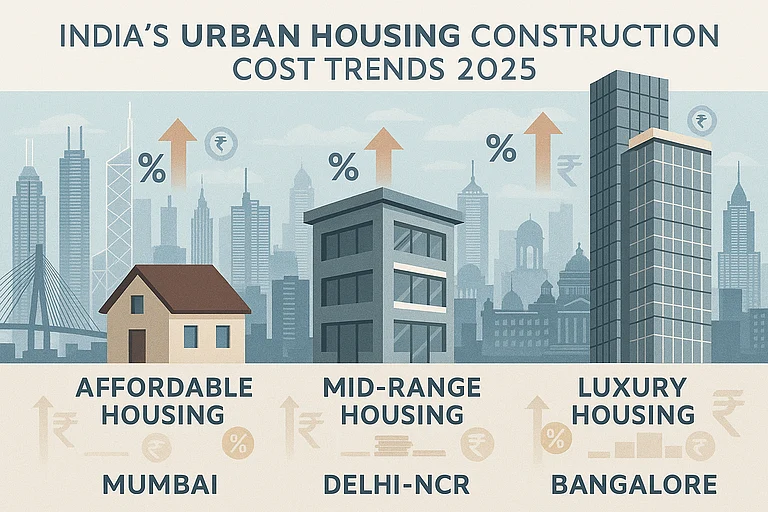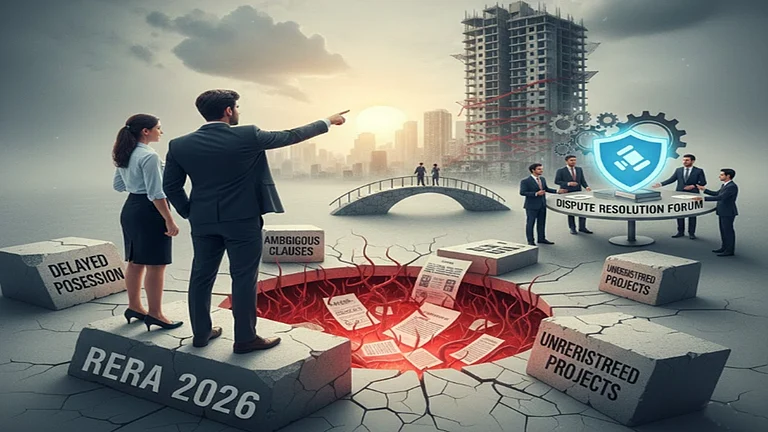Anyone putting their life savings into a home needs assurance. Not vague promises, not shiny banners, but hard facts: legal status, construction quality, delivery timelines. A little homework at the start can save years of stress later. To be honest, most of this information is available if one bothers to look in the right places.
Key Platforms for Checking the Credibility of a Residential Project
RERA Website
The Real Estate Regulatory Authority (RERA) is the one platform buyers should never skip. Every legitimate project must be registered here. On the state RERA portal, a buyer can see whether the project even has the right to exist on paper, whether approvals are in place, and what timelines the builder has committed to. Builders are legally required to keep updating progress reports. If a project isn't listed or the details look suspiciously thin, that's already a red flag.
Real Estate Portals and Reviews
Real Estate websites go beyond glossy ads. They publish reviews from actual buyers, sometimes brutally honest ones. These comments reveal what really matters: construction delays, quality of material, false promises about amenities, or how responsive (or unresponsive) the builder is once money is taken. For example, one project in Gurgaon showed five-star ads everywhere, but on review sites, buyers complained about damp walls and two-year delays. That's the kind of information that counts.
Social Media Forums
No one should underestimate the power of random Facebook groups or WhatsApp communities. These are not marketing channels; these are people venting frustration or sharing cautious optimism. If a builder has a track record of ghosting buyers after collecting payments, you'll see it in these forums. Reddit threads often dissect projects' threadbare location, builder ethics, and hidden charges. They might look messy, but buried in those conversations is the raw truth.
Expert Blogs and Reviews
Property analysts and influencers, particularly those focused on a specific city, often publish detailed breakdowns. They compare price trends, evaluate location pros and cons, and expose shady practices. A sceptical buyer should at least skim through such blogs. While they may not be the gospel truth, they give a perspective that glossy marketing never will.
Google Reviews
It's astonishing how often people skip the most obvious thing search the project on Google. Ratings, photos, videos, buyer complaints, they're all there. But here's the catch: don't trust a single glowing review. Look for patterns. If ten different people complain about late possession, chances are, that's the reality.
Builder's Website and Testimonials
Yes, a builder's official website will showcase happy buyers grinning in staged photos. Testimonials often sound suspiciously similar because many of them are written by the sales team. Still, the builder's website is worth checking for project highlights, approvals, and timelines. Just don't take it at face value. Always verify with independent sources.
Factors to Consider When Relying on Different Platforms
Project Stage
An under-construction project is a gamble. The earlier the stage, the higher the risk. RERA data gives clarity, but even then, one should cross-check with on-ground photos and buyer updates.
Legal Compliance
This is a non-negotiable condition. It is the buyer's responsibility to demand the following documents:
RERA registration: Confirms legality.
Land title deed: Confirms ownership of the land by the builder.
Approved building plan: Ensures compliance with city regulations.
Commencement certificate: Proof the builder is even allowed to start.
Encumbrance certificate: It reflects land is free of loans or disputes.
NOCs: Fire protection, environment, and other approvals.
Builders are obligated to share these. If they hesitate, that's a signal to walk away.
Builder's Reputation
Past behaviour predicts future behaviour. A builder who delayed three projects before will likely delay the fourth. Buyers should visit older societies built by the same group to see how well they are maintained. Did residents get what was promised? These observations speak louder than advertisements.
Construction Quality of Past Projects
Walk into an old project by the same builder. Look at the plastering, plumbing, elevators, and maintenance. If it feels shoddy now, expect the same for the new one.
Neighbourhood and Location
Even a flawless building is useless in a dead neighbourhood. Schools, hospitals, transport links, shops these matter as much as square footage. A project in the middle of nowhere may look cheap now but could trap buyers later with poor resale value.
Promised Amenities
Clubhouses, swimming pools, landscaped gardens they look wonderful on brochures. But are they really coming? A smart buyer should check the construction site and track updates. Empty promises are easy to make; harder to fulfill.

















